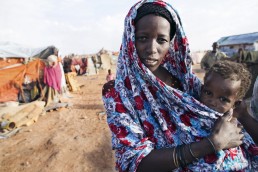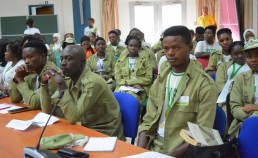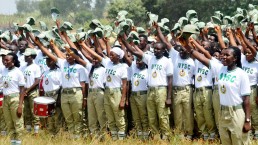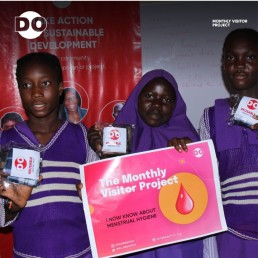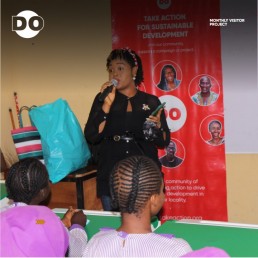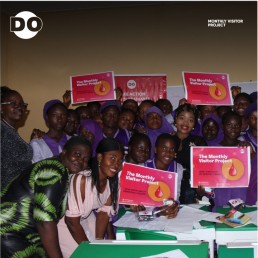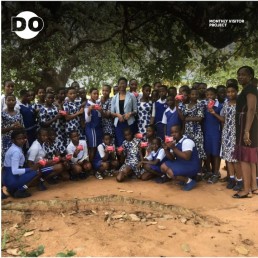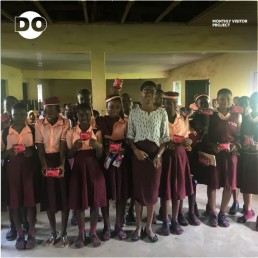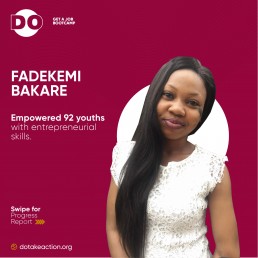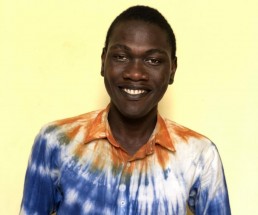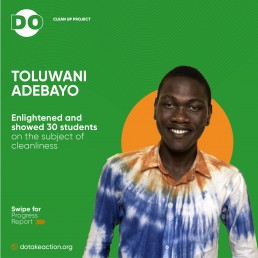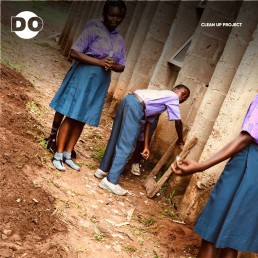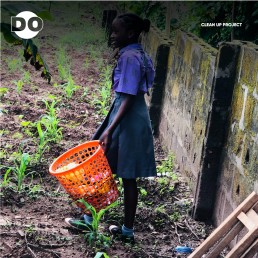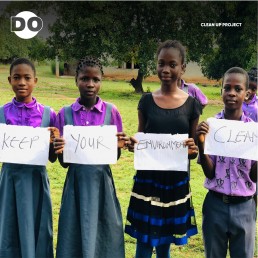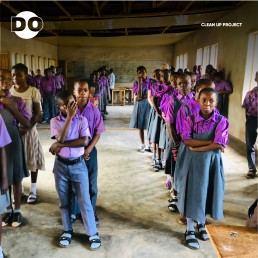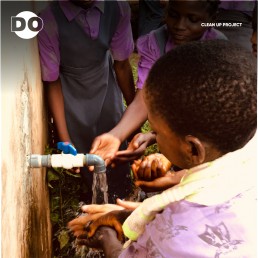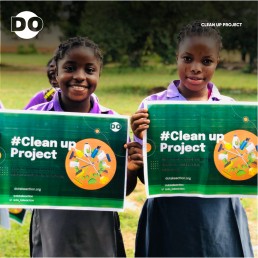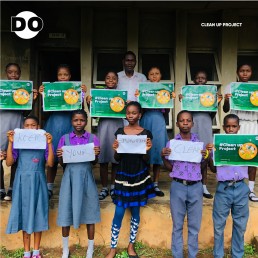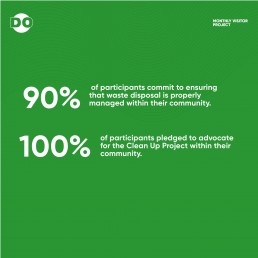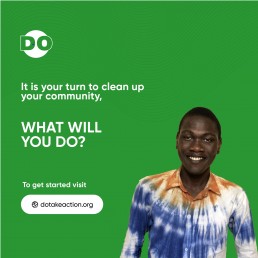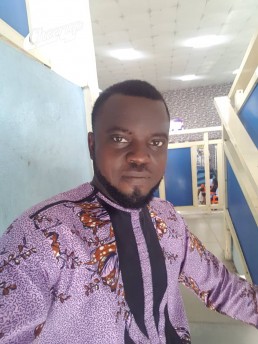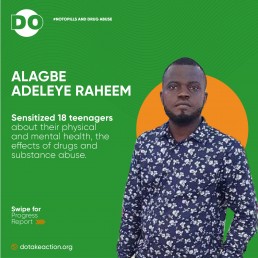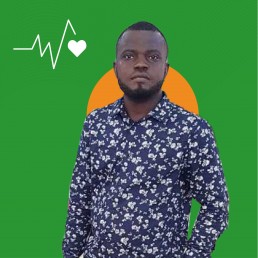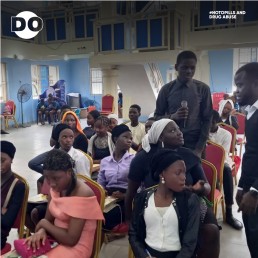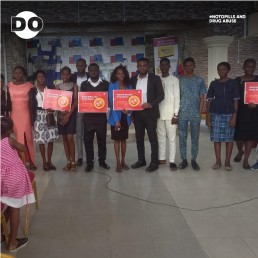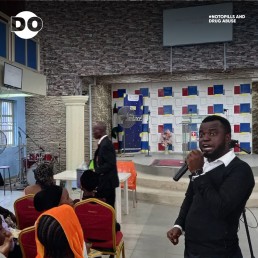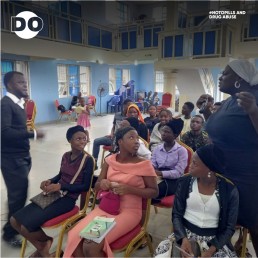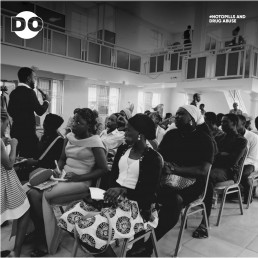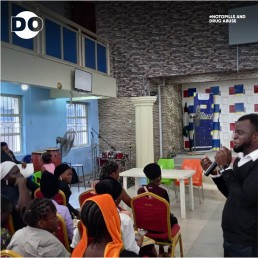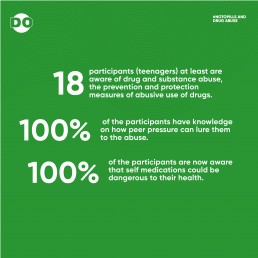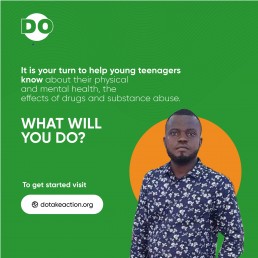Soft skills teachers can teach their students to prepare them for life after school
We live in a system where soft skills are paramount. Soft skills determine the result of every relationship, whether personal or professional; they can be used to communicate with neighbours and friends to persuade a client to seal a sale.
Soft skills are desirable traits like communication, grit, integrity, time management, critical thinking, creativity, teamwork etc., that apply to various jobs and daily life.
Soft skills are therefore crucial at this time. We must instil in our children these soft skills during their formative years if we want them to bring out the best in them and be ready to tackle life fully in all its ramifications.
Here are some soft skills teachers can teach their students to prepare them for life after school
Communication
Every teacher should strive to develop their students’ communication through writing exercises, discussions, debates and presentations. They should teach them to communicate clearly, concisely and confidently without slouching, mumbling, or covering their mouths with their hands. Leveraging formal oral speaking opportunities like individual or group presentations, holding interactive sessions, and pairing up students on the first day to do interviews with one another and introduce their partner to the class, will help them develop communication skills.
Teamwork
Teamwork skills are a mix of interpersonal, problem-solving, communication, and interactional skills required by a group working on a project and toward a common goal. Place a strong emphasis on cooperation, communication, integrity, and responsibility.
Divide your students into groups and assign them in-class time to research a topic and present as a group. Require that each team member spend an equal time presenting a portion of the information.
Emotional Intelligence
People with emotional intelligence can control or better manage their emotions and sympathise with people around them.
Often, teenagers are unempathetic and inconsiderate in how they treat people of lower status around them. They insult homeless people on the street corner and make jest of poor students without even considering that there might be a reason for their predicament.
Teach your children to empathise with other people’s predicaments. Bring them to a soup kitchen or charity event to volunteer, organise donations to the less fortunate in your class and encourage them to help needy people around them.
Time Management
Time management is a crucial skill in this fast-paced age. You need time management to function in all ramifications of life.
All students should master time management skills because they will need them both in school and after they start working. In addition to learning how to manage their schoolwork, students must also learn how to balance their work obligations. Students can learn how to handle these issues by completing the time management challenge.
You can inculcate this skill into your students by giving them in-class tasks, projects and assignments with deadlines for submission. Those who beat the deadlines should be rewarded accordingly.
Critical Thinking
Higher levels of intellectual capacity are attained through enhancing critical thinking skills such as problem-solving and cognitive activity.
Incorporate critical thinking skills into the classroom by presenting examples from the real world to make the lessons applicable. Your students will be more engaged with your lesson material and find connections between what you are teaching them and their futures the more relevant you can make your teachings. In addition to keeping students interested, experiential learning activities enable them to apply the skills they are learning in the real world.
Creativity
Creativity is the process of turning thoughts, fantasies, and desires into reality. History demonstrates that imagination is the foundation of creativity and that many things we dream up later become a reality. The future cannot exist without innovation.
Children’s mental and cognitive growth is aided by encouraging their creative brilliance, which also helps them concentrate better and learn new information more quickly.
Taking a break from classroom instruction to do trips, tours, and sight-seeing where they may see real-world applications of what they are being taught in school is one approach to unleash the creative genius in your students.
Encourage them to journal as this will help them to articulate their thoughts and keep track of their ideas.
You can also organise brainstorming sessions, where you give them a difficult task to do without guidelines and see what they will come up with.
Grit
According to Angela Duckworth, grit is a personality attribute that combines passion and perseverance. Grit is a desirable, non-cognitive quality based on a person’s drive and resilience in pursuing a certain long-term target (a powerful motivation to achieve an objective). This persistence in effort encourages the removal of barriers or difficulties that stand in the way of achievement and acts as a catalyst for achievement realisation.
Teach your students to develop grit by incorporating a ‘not yet’ grade into your grading system. Give your students a “not yet” grade rather than failing them, and encourage them to revisit the topic, project, or task until they understand it.
Do you find this article helpful?
Join our Teachers’ Network that supports teachers and school managers by connecting them with access to high-quality instructional resources, professional training, workshops, and ongoing professional growth and development opportunities.
Click here to sign up.
Resources
Soft Skills: Preparing Kids for Life After School – AMLE
How to Teach Your Kids the Most Important Soft Skills That Aren’t Taught in Schools – Lifehack
Angela Duckworth: What Is the Meaning of “Grit?” | Shortform Books
Protecting Women and Girls from the Horrors of Violence in Conflict Zones
Kateryna, 19, said Chechen fighters in Mariupol, Ukraine raped her. 42-year-old Vika and 44-year-old Natasha share the same story with a host of Ukrainian women and girls who have suffered sexual violence at the hands of Russian soldiers.
Half a million women were raped during the Rwandan genocide. As many as 64,000 women suffered sexual violence during Sierra Leone’s brutal blood diamond fueled civil war. And 40,000 women were raped in Bosnia.
In Nigeria, the Boko Haram insurgency is estimated to have led to the abduction of 6000 women and girls, claimed at least 20,000 lives and displaced more than 2.6 million people, the majority of whom are women, girls and children.
In the Democratic Republic of the Congo and Sudan, it has been said that it is more dangerous to be a woman than a soldier.
Rape, sexual slavery, forced prostitution, forced pregnancy, forced abortion, forced sterilisation, forced marriage, and any other kind of sexual violence of equivalent intensity are the eight types of sexual violence that the United Nations recognises in times of conflict.
Sexual violence against women in conflict is a crime against humanity, a war crime and an unacceptable weapon of war. Unfortunately, it is also a very effective weapon of war.
In addition to having horrific physical and psychological impacts on the victims individually, raping, sexually assaulting, and mutilating the wives, daughters, and mothers of the “enemy” can disrupt, if not destroy, entire populations.
The fact that the offenders are barely prosecuted is pathetic. The victims’ lives continue to be significantly adversely affected, while the perpetrators enjoy impunity for their crimes.
Drivers of sexual violence in conflict
War rape or other sexual violence committed by combatants against women and girls during armed conflict, war, or military occupation are often considered spoils of war. However, that is not the case.
Sexual violence is a war strategy to displace communities, expel so-called “undesirable” groups and seize contested land and other resources. For instance, in South Sudan, combatants raped women and girls as part of a campaign to drive opponents out of southern Unity State.
Also, sexual violence is a means of radicalisation and violent extremism by terrorist groups to advance their ideology and destabilise social structures by terrorising women and girls. A good example where this is in play is Nigeria, where extremist groups target women and girls for abduction and sexual abuse as part of their political economy and self-perpetuation.
Sexual violence is also a recruitment strategy by terrorist groups, who may promise marriage and sexual slaves as forms of masculine domination and status to young men.
Again, sexual violence is used by combatants to humiliate and punish perceived political opponents, as seen in Burundi, where combatants gang-raped and sexually humiliated detainees who are perceived as political opponents.
However, the chief driver of sexual violence is the chauvinistic perception that women and girls are inferior to their male counterparts. Women who navigate through checkpoints and across borders during displacement during conflict without proper documentation, money or legal status are sexually exploited.
Women and girls are at risk in refugee camps or camps for internally displaced persons. There, they could be easily exploited, trafficked, raped, and forced into prostitution by armed groups, smugglers, traffickers, state authorities, and others who control resources and services in humanitarian contexts.
In some cases, desperate parents force their young daughters into early marriage to reduce the risk of exploitation by strangers or to gain access to resources for the rest of the family.
Ripple effects Sexual violence in conflict
In armed conflict, sexual violence infringes the rights of women and girls to sexual and reproductive health and their right to protection from sexually transmitted diseases like HIV. It threatens gender equality by endangering the lives of numerous girls and women.
Lack of access to good health services in conflict zones complicates the impact of sexual violence on the victims, who often cannot access prompt medical aid and services such as post-exposure prophylaxis. Sexual violence in conflict endangers maternal and child health and increases mortality rates due to infectious diseases.
Sexual violence has serious negative effects on the victims’ physical and mental health, including unwanted pregnancies, traumatic genital injuries, sexual dysfunction, sexually transmitted infections, rape trauma syndrome, post-traumatic stress disorder, depression, guilt, loss of dignity, and hopelessness and alienation.
Survivors and their children often face high levels of stigma, and the children can be at risk of abuse, abandonment and marginalisation. Children born of wartime rape are stigmatised at birth and may suffer a lifetime of detrimental consequences. They are often prime targets for recruitment by armed groups and terrorist organisations.
Where is the justice for victims of sexual violence in conflict?
The International Criminal Court (ICC) investigates and probes the gravest crimes of concern to the international community, including genocide, war crimes, crimes against humanity, and crimes of aggression.
Despite the increased attention of the international community to ending impunity for sexual violence crimes, sanctions remain elusive.
Apart from the reluctance of most victims to report their experiences and actively seek justice because of stigmatisation, abandonment and rejection from their family and society, the major deterrent is the lack of confidence in the judicial system, fear of reprisal and the corrupt involvement of the powers that be.
The failure of state authorities and judiciary to bring perpetrators of sexual violence into conflict time and again leaves no hope of justice for the victims.
In Nigeria, the trials for prosecuting terrorists caught always take a long time. In some cases, before the trials are held, the suspects are rescued by their group or released after striking a deal with the government. Sometimes, these terrorists are given amnesty or integrated into the armed forces to continue their rampage. The worst is the involvement of the powers that be; these people can make victims disappear overnight.
What can be done to protect women and girls from sexual violence in conflict?
Due to individual and structural restrictions, there is usually insufficient data on sexual violence in conflict, and data collected are usually not commensurate with the true details of the cases. To resolve this, the international community should establish a system for detailed data collection and documentation of sexual violence cases for use in research, advocacy, policy discussion, and capacity building; this data can be utilised to liaise between the medical and legal sectors within the criminal justice system to bring the perpetrators to justice.
The United Nations Security Council should liaise with organisations and health professionals in conflict and safe regions to facilitate transnational justice processes.
To combat gender inequality and remove obstacles to women’s empowerment, state authorities must strictly comply with the UN Convention on the Elimination of All Forms of Discrimination Against Women (CEDAW).
Access to protection and support for victims before, during and after trial; putting in place measures to facilitate safety as they seek justice.
Victims should be evaluated for the psychological and psychosocial effects of sexual violence and go through therapy before reintegrating into society.
State authorities should provide professional training for health staff, especially female health personnel for data collection and documentation of incidents of sexual violence. They should allocate sufficient human and financial resources for advocacy, monitoring, and evaluation.
State authorities should also promote women’s active and equal political, social and economic participation and end the stigmatisation of victims by promoting substantive equality and enacting laws and policies that prohibit discrimination against women.
State authorities should adequately vet and train armed and security forces. A policy of zero tolerance of conflict-related sexual violence should be imposed to bring perpetrators to justice, irrespective of rank, and ensure that victims are protected and receive adequate reparations.
What we do at DO
#NeverAgain #NotoGBV project
In a global statistic by WHO, one in three women experiences either intimate partner violence or non-partner sexual violence during their lifetime ranging from physical, sexual, emotional and other family violence to female genital mutilation (FGM), child marriage, early childbearing, trafficking and sexual violence as a weapon of war.
#NotoGBV is a sensitisation project designed to increase the knowledge and understanding of gender, sexuality, GBV, rights, and laws.
Lend a helping hand to victims of conflict project
Lend a Helping Hand project is a community project aimed at helping people and communities who have survived conflicts to rebuild their lives through financial support, vocational training, access to health care, education and other services.
Here’s how you can TAKE ACTION
- Organise an outreach to increase your community’s awareness about gender-based violence, and provide a helping hand to victims.
- Speak up, lend your voice, advocate and raise awareness on this issue.
- Lend your creativity to create relevant multimedia content, technology innovation or solutions that raise awareness or address this issue.
Sources
https://assembly.coe.int/nw/xml/XRef/Xref-XML2HTML-EN.asp?fileid=17741
https://www.ifhhro.org/topics/sexual-violence-in-conflict/
https://www.icc-cpi.int/about/the-court
https://www.crisisgroup.org/asia/south-asia/pakistan/bridging-pakistans-gender-divide
Africans leading social innovations in Africa
As socio-economic, political, technical, and cultural developments spread across Africa, the continent is fast growing and changing.
However, the systemic problems facing Africa include; weather and climate change that has caused economic, social, and environmental consequences, abject poverty promoted by the Russia-Ukraine war and loss of jobs and unemployment because of the pandemic.
The Economic Outlook report Africa 2021 reveals startling data;
- 30 million people in Africa were pushed into extreme poverty in 2021 during the pandemic
- 22 million jobs were lost in 2022 because of the pandemic.
- Over 1.8 million people might be pushed to poverty following economic disruptions stemming from the Russia-Ukraine war.
Notwithstanding the many challenges Africa is struggling with, a new breed of innovators, social innovators, have taken it upon themselves to proffer social innovations to address some of these issues, especially as it has to do with unemployment and unemployability of youths, poverty, violence etc.
What is social innovation?
According to the Stanford Graduate School of Business, social innovation is developing and deploying effective solutions to challenging and often systemic social and environmental issues in support of social progress. Social innovation is not the prerogative or privilege of any organisational form or legal structure.
Let’s see some leading social innovators in Africa.
1. Maya Horgan Famodu
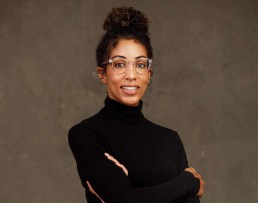
Maya Horgan Famodu is the founder of Ingressive, a consulting firm providing market entry/market ops services and tech research for corporates and investors. Over 50 venture capital firms and IT startups have engaged Ingressive LLC’s services. Clients have launched joint ventures through Ingressive market entrance services and made over 70 investments.
Clients have launched joint ventures through Ingressive market entrance services and made over 70 investments.
Also, she founded Ingressive Capital, a $10M VC targeting tech-enabled startups in Nigeria, Kenya, Ghana and Egypt. Ingressive Capital portfolio companies include Paystack, Bamboo, Carry1st, Mono, Tizeti, Lenco, Jetstream, 54gene, and OZÉ, among many others.
In 2020, Maya established a non-profit set up for her firm – Ingressive for Good – to equip young Africans in need with tech skills to help them impact and contribute to the development of Africa, socially and economically by providing micro-scholarships, tech training and talent placement for African youth. The non-profit has partnered with Google, Geneva, Data Camp, Zuri Training and a host of other tech companies to train over 100,000 people on tech skills.
Maya Horgan Famodu is a venture capital investor, entrepreneur, and 2x Forbes 30 Under 30 entrepreneur. She is committed to ensuring brilliant people, wherever they are located, have access to the resources they need to build wildly scalable businesses.
However, her journey into Africa’s VC industry was not smooth.
The Half-Nigerian recalls growing up with nearly nothing in a Minnesota trailer. Her father is a Nigerian pastor, and her mother is an American soldier.
She completed the Cornell University Prelaw Program, and Maya enrolled at Pomona College while working in the banking industry for JPMorgan Chase. She also worked in private equity research, advising companies trying to expand their operations to West Africa. Before founding Ingressive, Maya travelled to Southern Africa and Latin America to do economic research on emerging markets.
Maya left her private equity job in New York to go to Nigeria, hoping to set up her fund. However, at 23 years old and with just 18 months of experience in the industry, she didn’t get very far in finding backers.
Notwithstanding, in 2017, Maya started Ingressive as an investment advisory firm at age 25 to build her reputation in the industry and eventually launched Ingressive Capital in 2017. From there on, Maya emblazoned her trail as the youngest person to have launched a tech fund in sub-Saharan Africa and the first woman to do so alone in Nigeria.
2. Ismail Ahmed
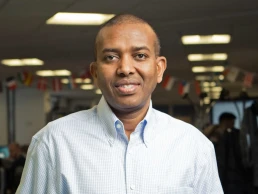
An estimated 30 million Africans reside outside Africa, and many send money back home to ease their economic burdens. The World Bank reports that the cost of sending money to Africa is the highest globally; money transfers to sub-Saharan Africa typically cost 9.74 per cent of the total.
This was a pain point Ismail Ahmed intended to explore. However, before he founded his business, Ahmed had long understood the need to reform the remittance industry.
This is the backstory.
Ahmed was awarded a World Bank scholarship to study in the United Kingdom. After he left Somalia for the UK, Ahmed intended to send cash to his relatives back home while pursuing his PhD at the University of London. However, every transaction required a risky trip across London to agents who charged exorbitant fees to send relatively modest amounts to Africa.
Ahmed found it upsetting that a billion-dollar industry would rip off African clients who want to send money to their families in a continent that is the poorest in the world.
Ahmed worked for the United Nations Remittance Programme in the UK. His responsibility was to assist African money transfer companies in adhering to strict anti-money laundering regulations in the wake of the 9/11 attacks. Ahmed discovered corruption occurring in his department at this time and reported it. But, instead of being commended, Ahmed received a backlash from the UN. He was reassigned to Dubai, and he was denied his due privileges.
He quit the job in 2007 and bagged his MBA at the London School of Business (2008 – 2010), simultaneously starting his startup – WorldRemit.
His stint at the United Nations Remittance Programme proved useful as he gained the knowledge, expertise, skills and connections he needed to establish his startup there.
Over the last ten years, WorldRemit has grown to serve 5.7 million customers, using 70 different currencies, across 130 countries worldwide. WorldRemit has made it convenient to send money with various options for sending transfers to loved ones overseas, including bank transfer, mobile money, and cash pickup.
3. Bethlehem Tilahun Alemu
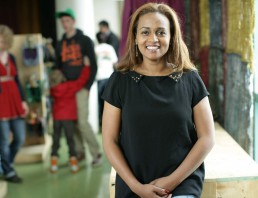
Bethlehem Tilahun Alemu was raised in the Zenabwork village, a rural area of extreme poverty. Like many social entrepreneurs, she saw an opportunity in the face of difficulty. Alemu observed that many of the unemployed individuals she grew up with possessed impressive artisan skills; this inspired her to look into how she could harness their craftsmanship for the good of the community.
Soon after earning her accounting degree from Unity University in Ethiopia, she persuaded her husband and her family to provide some start-up money for a social venture. In 2004, Alemu launched soleRebels, a line of ethical and eco-friendly footwear.
Alemu started a footwear business because she saw it as a perfect way to introduce the world to many of Ethiopia’s traditional eco-friendly craft heritages and artisan skills.
The shoes are a contemporary recreation of the renowned Selate and Barabasso shoes that ancient Ethiopian soldiers wore to defend their nation against European soldiers.
Alemu named her company soloRebels to honour the soldiers and reflect Ethiopian culture and heritage.
Alemu has won numerous accolades and prizes for her outstanding work; the 2012 Schwab Foundation Social Entrepreneur of the Year, a 2011 Young Global Leader from the World Economic Forum, and one of Forbes magazine’s 100 Most Powerful Women to Watch in 2012. She sits on the board of the African Innovation Foundation, which invests in African-led solutions to problems facing the continent.
4. Fred Swaniker
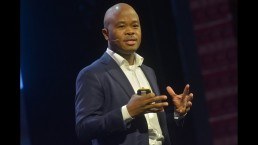
Fred Swaniker is a Ghanian serial entrepreneur, leadership expert and a former McKinsey consultant. He has been recognised by the World Economic Forum as a Young Global Leader and was listed by Forbes magazine among the top 10 young power men in Africa in 2011.
Over the past 16 years, he has founded and led the pre-university African Leadership Academy based in South Africa, the African Leadership University with campuses in Mauritius and Rwanda, the African Leadership Network, ALX (a next-generation leadership development platform) and The Room (a global community of top talent).
What is his story?
Swaniker lived in four countries in Africa before the age of 18, including Ghana, Gambia, Botswana, and Zimbabwe. At just 17 years old and on a gap year before beginning university, he was appointed headmaster of a school in Botswana. He has worked in Nigeria, Ghana, Tanzania and South Africa as an adult.
Living in these countries formed his belief that Africa’s problems are squarely down to a failure of leadership, having experienced firsthand the quality of leadership across the African continent and the consequences of this. In his mind, what Africa needed most was ethical and entrepreneurial leadership in transforming the continent.
While studying at Stanford, she conceived the vision of creating a world-class educational institution. He shared this vision with his co-founder Chris Bradford, and they wrote the business plan for African Leadership Academy.
Fast forward to his graduation in 2004, he launched African Leadership Academy (ALA). The institution aims to transform Africa by developing a powerful network of over 6,000 leaders who work together to address the continent’s greatest challenges, achieve extraordinary social impact, and accelerate the continent’s growth trajectory.
The ALA academy officially opened its doors for its inaugural class in June 2008 at their Honeydew campus outside Johannesburg. Famous alumni include Tom Osborne (founder of Greenchar in Kenya & also an Echoing Green fellow) and William Kwamkwamba.
In subsequent years, Swaniker established African Leadership University (ALU), African Leadership Network and Business School, and the Room.
Swaniker has been recognised by many global figures, like Barack Obama, for his work in Africa. He is a TED Fellow (2009), a World Economic Forum Young Global Leader (2012), and has been named one of the Top Ten Young Power Men in Africa by Forbes (2011), one of the top 15 social entrepreneurs in the world’ by Echoing Green (2006), one of the “100 Most Influential People in the World” by Times (2019). Swaniker has received three honorary doctorates—one from Middlebury College in the USA, one from Nelson Mandela University in South Africa, and one from Macalester College in the USA.
Fast Company has recognised the African Leadership Group among the 50 most innovative companies in the world.
5. Anne Githuku-Shongwe

Anne Githuku-Shongwe is the founder and CEO of Afroes Transformational Multi-Media & Consulting. Like the African Leadership School, Afores is based in Gauteng, South Africa. The company wants to “position African youth for productive futures through innovation in skills acquisition, engagement, and linking to opportunity.”
To achieve this, they provide gamified solutions that address certain socioeconomic problems like youth unemployment, gender-based violence, child protection & safety, and environmental concerns.
Job Hunt is one such game that seeks to educate players about the world of online work. The user is welcomed into an online environment where they must compete for jobs, finish them on time, earn money, and manage their abilities and resources.
Numerous awards and honours have been bestowed upon Anne Githuku-Shongwe and her business. These include being nominated as a fellow at the Unreasonable Institute in 2011, receiving the Cariters Women Initiative Award and the Schwab Social Entrepreneur of the Year 2013 award from the World Economic Forum.
What is her story?
Conversations with her children inspired Anne’s business, Afroes (the name is a play on the terms “African Heroes and Heroines”). She was concerned that kids were not exposed to any positive African media and that the pervasively negative messages about Africa in the Western media influenced their ideas and aspirations for the continent.
While observing her son play ‘Civilisations’, a computer game, s he realised then that she needed to use video games’ influence to spread uplifting messages to African children.
She ended her 13-year stint with the United Nations Development Programme to found an interactive digital media company that offered young people all over the continent mobile phone entertainment centred on Africa.
Anne had to learn everything about computer gaming from the beginning, including how to create highly appealing and engaging games specifically for mobile phones that were inexpensive and accessible to African children and their families.
Today, Afroes has developed several mobile games with over 450,000 users designed to shape new choices and spark challenging discussions for African youths.
6. Kennedy Odede

Kennedy Odede is the founder of Shining Hope for Communities (SHOFCO). The initiative has an integrated model for urban slum transformation that links direct services like health care, girls’ education, and clean water with a community-based organising platform. SHOFCO provides community people with the tools to inform and direct the social change agenda, focusing on women and girls’ leadership.
Odede spent his formative years in the Kibera Slum, where he endured 23 years of extreme poverty. Odede, the oldest of eight children, began selling peanuts to help support the family. Kibera is home to more than 1.5 million people; it has no restrooms, clean water, roads, or schools. One in five children does not live to see their fifth birthday, and 66% of girls engage in sex for food, often as young as 6.
Odede realised he needed to take action to escape this precarious environment after seeing his mother suffer at the hands of his abusive father, his sister get pregnant at the age of 16, and many of his friends turn to life of crime and prostitution.
Inspired by the stories of his hero, Dr Martin Luther King Jr., Odede thought of how he could distract his friends from their sorrow and hunger. At the time, he had a job in a factory earning $1 for ten hours of work, from which he saved 20 cents to buy a soccer ball. What started as a means of distraction from their terrible realities in the slum gave birth to Shining Hope for Communities (SHOFCO).
Odede was one of the first people in Kibera to acquire an education from an American liberal arts university; despite having only received informal education, he was awarded a full scholarship to Wesleyan University in America. He earned honours in sociology and was the commencement speaker in 2012 before returning to SHOFCO full-time.
Today, SHOFCO is a leading provider of health care, WASH, food aid, and economic stability to over 2.4 million slum residents across 32 urban and rural slum districts in Kenya. SHOFCO is also at the forefront of the COVID-19 response. The Conrad N. Hilton Humanitarian Prize, the largest humanitarian honour given to nonprofits in the world, was given to SHOFCO in 2018, making the organisation the youngest-ever recipient.
Kennedy is multilingual. Aside from SHOFCO, he founded Teach for Kenya and has had op-eds published in the New York Times, Forbes, Guardian, Daily Nation, and Business Daily. He and his wife and business partner, Jessica, co-authored the New York Times bestselling book Find Me Unafraid: Love, Loss and Hope in African Slum.
Kennedy received the Echoing Green Fellowship, granted to the world’s top rising social entrepreneurs, and the Schwab Foundation for Social Entrepreneurship Innovator of the Year Award 2022 for his leadership with SHOFCO. He was awarded the Muhammad Ali Humanitarian Prize in 2014 and was listed among Forbes’ “30 Under 30” list of the top social entrepreneurs. He is also a member of the Clinton Global Initiative, an Aspen New Voices Fellow, an Obama Foundation Fellow, a UBS Global Visionary, a Young Global Leader of the World Economic Forum, and a Global Future Council of the World Economic Forum.
Conclusion
The United Nations project that the population of Africa will grow to 1.467-billion by 2025, add a further billion by 2050 and climb to 4.185-billion by 2100.
It’s just a projection.
It could be more or less.
But, have you asked yourself what would be the state of Africa’s economy by 2025?
We have seen social innovators and entrepreneurs who are leveraging to the socio-economic challenges in the continent to proffer sustainable solutions.
But, there is still so much to be done.
Do Take Action is doing her bit to empower a critical mass of 1billion+ Africans to take action for Africa at the grassroots level.
Join us in this movement.
Click here to become a Grassroots Development Champion and take action in your community.
12 Skills Corps Members can maximise their service year to learn
NYSC service year is the dream of an average Nigerian student.
It’s a time of freedom from boring lectures and difficult examinations.
It’s a time of liberty from intense supervision and unpleasant instructions.
It’s a time of binge fun, unrestricted pleasure and unguarded enjoyment.
It’s a time of wholesome independence.
In a nutshell, the NYSC service year is one year you have to yourself before life comes at you full force, and you must make major decisions.
However, it is worthy of note that one year can set the pace for the rest of your life.
That one year could be a time for intense personal and professional development.
It could be the one year you get to learn all the competencies you were not opportune to be taught at home and in school.
Here are 12 Skills Corps Members can maximise their service year to learn
1. Digital/Tech Skills
It’s no news that technology is the new oil money.
One interesting fact about this new money is that you don’t need to spend years in the four walls of a university to become a professional.
All you need is your smartphone/laptop, data and a small token for the course. Admittedly, data service might not be as good as you’d like, but has it stopped you from posting your ‘slay’ pictures?
Some in-demand digital/tech skills you can learn include;
- Digital marketing
- Content marketing
- Web development
- Mobile development
- Software development
- Graphics design
- Video editing
- UI/UX
- Artificial intelligence
- Machine learning
- Data science
- IoT
- Etc
2. Financial Literacy
There is no better time to learn to become tactful with money than now. Now is the best time to learn how to create a budget and adhere strictly to it. Learn how to save at least 10 per cent of your monthly income.
There is no better time to kick-start your financial journey than now.
If it takes signing up for financial skills courses, do that.
Make out time to study the world of finance and investments.
Learn how to trade stock, forex, crypto and other investment opportunities.
3. Reading and writing
I know you are shocked.
Reading may not appear to be much of a skill to you. But you must be a lifelong learner to stay afloat, and reading is essential to learning.
There is so much to learn, even after your degree. Your service year could be an opportunity to finally read up on some of the concepts you have always craved. It’s time to catch up on new trends changing our world like Blockchain technology, metaverse, virtual and augmented reality, etc.
What about writing?
In this time and age, you need to know how to articulate words on paper to be relevant.
You need it at work to prepare reports and to further your education because you must write academic articles, thesis etc.
You even need it in social media to write tweets, posts and articles that will establish you as an authority in your field.
The good thing is that you don’t need much to start; you just need a journal to record your daily experiences. Then, you can proceed to more advanced writing if you wish.
Nothing builds your conceptual ability, articulation, vocabulary and worldview as reading and writing skills.
4. Communication/Social Skills
Many brilliant and innovative ideas are yet to see the light of the day because the owners have not learnt the essential communication skill.
You need communication skills in all facets of life; at work to make presentations, at home with your spouse or siblings, in your relationship with your girlfriend/boyfriend, in your business to sell your market or attract an investor.
You can start learning by seizing every opportunity to air your opinion, answer a question or make a contribution.
Try walking up to other corps members to initiate a conversation.
Take it a notch higher by making public speaking presentations at events, seminars, and even religious programs.
5. Business/Entrepreneurial Skills
NYSC service year is an opportunity to trade the difficult terrain of entrepreneurship. It is a time to venture into those business ideas that you’ve always had.
You could succeed or fail. But one thing is certain; you will learn more from running a business than from a thousand business masterclasses.
However, that is not to play down the importance of business masterclasses, summits and courses.
No.
By all means, enrol into a business school, sign up for a business course, read books on business and join a community of young entrepreneurs.
6. Leadership Skills
Leadership skills are people’s abilities to lead and deliver projects, encourage initiatives, build a sense of common purpose, and empower others.
From the definition above, it is stark clear that you need leadership skills whether you consider yourself a leader or not.
If you are posted to a school, you are a leader to your students. Even if you are serving in an organisation or company, you may be given a project that requires leadership skills to execute effectively.
At some point in life, you will be called upon to lead something at work, at home, in your religious gathering, among friends and colleagues.
What better time to learn leadership skills than now?
7. Salesmanship/Negotiation Skills
Whether you want to be an entrepreneur or work a 9-5 job, you need negotiation and salesmanship to market yourself and sell your idea.
Funny enough, these are skills every corps member should have before reporting to their PPA, as it will enable them to understand and sell their value to their PPA and negotiate better pay and working conditions.
Learn how to sell your business idea and negotiate a better offer.
Learn how to sell your worth in a company and negotiate a better pay package.
8. Networking/Relationship Skills
A wise man once said, “if you bought everything you have with your money, you are poor.”
Some of the best things in life are bought with relationships or connections.
As a young graduate, you must learn relationship and networking skills to move up the corporate ladder.
You need to learn how to cultivate strategic relationships with professionals in your field and build a strong professional network that you can rely on for support, recommendation and advice.
9. Basic Etiquettes
A little background story…
Two corps members – male and female – went to an eatery to flex their allawee small. They ordered fried rice and chicken.
The female corps member struggled with the fork and knife till the fried chicken landed on the floor.
What an embarrassment!
Negligence of etiquette might constitute a public embarrassment or, worst-case scenario, career suicide in the future if you don’t learn them now.
Leverage your service year to learn some of these things; learn how to eat a 3-course meal with the correct cutleries, be punctual to meetings, and hold the door or chair for a lady – add your own.
Some basic etiquettes include; social etiquette, business etiquette, workplace etiquette, communication etiquette, and table etiquette.
Find out where you are lacking, and invest time and resources to learn them.
10. Personal Grooming
Grooming and hygiene standards are not gender-specific, and they do not need wearing pricey human hair or fashionable clothing or caking your face with cosmetics.
Personal grooming is a self-care practice that people have to maintain their physical appearance and public persona.
I don’t think anybody on earth was born with body or mouth odour. These offensive realities come as a result of dirtiness.
Sadly, cosmetics have helped in masking some of these offensive realities. For example, a guy may decide to go out without taking a bath; he’ll just bathe himself with cologne and smell nice. However, immediately he becomes sweaty, and everyone around him witnesses the foul play.
Going for service connotes that you are now a ‘big boy or a big girl.’
Own the title.
Develop a personal self-care routine to care for your body.
- Take your bath regularly, at least twice a day
- Brush twice daily
- Use deodorants on a clean body
- Use cosmetics modestly to enhance your beauty.
- Wash and sterilise your underwear regularly
- Wear clean and ironed clothes
- Add your own
11. Housekeeping
Housekeeping is the management of duties and chores involved in the running of a household, such as cleaning, cooking, home maintenance, shopping, and bill payment. These tasks may be performed by household members or by other persons hired.
Many young people don’t know basic housekeeping, especially those who grew up with house helps.
Leverage your service year to learn basic housekeeping; cooking various dishes, washing and ironing, cleaning and organising your house, doing the dishes, taking care of your bills etc.
12. Driving
Driving is one of the most useful practical skills. It brings independence and social and career opportunities. It allows you to go where you want and when you want. Driving can come in handy when you are in a dangerous place.
Learning to drive and getting a driver’s license is something you should do during your service year if you don’t already know how to drive, and it will serve you for a lifetime.
What we do at DO
To get the best out of your NYSC year, join a network that supports graduates that have been deployed under the National Youth Service Corps by connecting them with access to the support that enables them to navigate the entire NYSC process, from Call up letters, to travel, PPA, Allawee, Security, CDS etc. In return, they are expected to commit to taking action to drive sustainable development in their community.
Sign up with us TODAY.
Click here to join us now.
Simple job hunting hacks that can make your application stand out
Applying for jobs is a full-time job.
A unique job application is priceless in today’s cutthroat job market. According to research, recruiters only glance at resumes for 7.4 seconds, so being able to make an impression immediately is crucial.
You must approach job applications holistically if your application must stand out.
Here are a few hacks to improve your chances of landing a job interview
1. Tailor your application
Do not have a single resume and cover letter you send out for your applications.
Recruiters and hiring managers to detest generic resumes, CVs and cover letters that do not highlight the required skill set, making them question your competence, integrity and work ethic.
It’s important to tailor your resume to the job to make your application stand out and show that you’ve done your homework and research about the company and the role.
Take the pain of researching for roles and responsibilities of the position you are applying for, especially as regards the company. Then, tailor your application to embody the job role.
2. Keep it simple
A cluttered resume or CV speaks poorly of the applicant.
Please keep it simple, concise and straightforward. Do not use ambiguous words.
Use the standard font and layout. Resumes or CVs are official documents; they don’t need to be designed graphically.
Ensure your spelling and grammar are on point and consistent throughout the document.
Go through your work thoroughly. Approach an expert in your field to review your document.
When you are done, save it as a pdf document to preserve the layout.
Your resume is your first impression before an interview. Make a good first impression.
3. Use Relevant Keywords
It may surprise you that employers and recruiters do not have the time to sit for long hours and review applications. They use software and tools to skim through applications using specific keywords relevant to the role and reduce the number of applications they will review.
So, no matter how competent or good your resume is, it will be sent to the trash can if it doesn’t contain the relevant buzzwords.
But you can avoid this by doing the following:
- Use action words to demonstrate the results you can achieve and what kind of soft skills you have that will benefit the organisation.
- Capitalise on your strengths, and they relate to the role you are applying for.
- Emphasise skills, not titles. Employers are more concerned with relevant skills and capacity than titles or offices you have held.
4. Relevant qualifications
No employer was interested in your qualifications and achievements ten years ago. They want to see current certifications and recent achievements, and they want to see a track record of continuous improvement.
Enrol for courses, classes and certifications in your field while applying for jobs. Get the up-to-date knowledge and certifications, and include them in your resume and CV.
Volunteering is a good way of getting free and recent experience in your field. You can also offer your services free for a start as a consultant.
However, if you feel your qualifications don’t measure up to the company’s specifications, still apply. Sometimes recruiters prefer applicants who are teachable, open-minded and have a growth mindset to those who only have technical skills.
5 Clean up your social media
Social media is the new CV. Many recruiters don’t even ask for your CV these days; they ask for your social media handles.
Why?
Because your social media profile says a lot about who you are; personality, opinions, life’s values, priorities, career prospects etc. A recruiter or employer can decide whether you are the best fit for a job by perusing your social media profile.
So, if your social media profile does not reflect the career prospects you are aspiring for, you need to get to work immediately.
Maximise LinkedIn to build a strong online presence, flesh out your resume with additional information, references, and other skills, and reiterate your employment history, skills, and education in your CV.
After the optimisation, make an effort to write and share posts that are on par with your career, connect with people in your industry, and contribute to social communities.
You can also have a personal webpage to showcase projects you have worked on.
6. Be a stellar performer at your current job
If you are searching for a job while working at another, you should maintain a good working relationship with your boss and colleagues.
When you establish yourself as a stellar professional, your references will have good things to say about you. Your awards, achievements and references will give your resume a facelift.
Do well to ask for a recommendation letter from your employer while still with them. Request for endorsement from your colleagues on professional platforms like LinkedIn.
You can explore volunteering opportunities to get recommendations if you are a virgin applicant.
7. Follow up
It’s not enough to apply. Follow through on the application by sending a thank you note before and after being invited for an interview.
If you are genuinely qualified for the job but don’t receive feedback, reach out to the hiring manager, recruiter or management via call or email. Confirm that your resume has been received, and be ready to explain briefly why you believe you are the right person for the job. Doing this will highlight your resume in what may be a cluttered inbox and spin the hiring manager’s attention.
Even if you receive a rejection letter, send a thank you note for considering your application and ask to be notified if something comes up.
What we do at DO
At DO, we have a community for job seekers where we hold them by hand and guide them through job hunting to job appointments.
DO Career network is a network that supports Fresh graduates, NYSC, job seekers, junior, middle and senior-level professionals by training, preparing, connecting, and providing opportunities that enable them to secure jobs, scholarships, lead successful careers and, most importantly, take action to drive sustainable development in their community.
Sign up with us TODAY.
Click here to join us now.
A simple guide to rock NYSC service year - Part One
‘Corper shun’
I know you are elated to be finally free from suffrage in Nigerian tertiary institutions and their burdensome curriculum.
Your name has finally made it to the NYSC list after countless ASUU strikes and numerous carryovers.
Excitement is written all over your face, and you can’t wait to flaunt your NYSC khaki, taking endless pictures to post on social media.
Calm down.
First off, congratulations on making it this far. It goes without saying that if you can survive the Nigerian education system, you can thrive anywhere.
So, it’s time for your one year of mandatory service to your country. But have you stopped to think of how to navigate this phase of your life?
See, NYSC is a defining point in the life of every Nigerian graduate; it can set the tone for your life – career, relationship, ministry, finance, business, name it.
Here's a simple guide to rock your NYSC
1. Get your NYSC kit early:
Once your name appears on the NYSC senate list, please list the things you need for orientation camp and buy them to avoid a last-minute rush.
Essentials to buy include;
- Toiletries
- Sanitary products for ladies
- Bedspread and mosquito net
- Two white t-shirts
- Two white shorts
- White rubber shoes
- Waist pouch
- A few casual clothes and shoes for Sunday
- Beverages and cereals so that you don’t spend much in Mami market and restaurant
- Padlocks for your bags
- You can buy bathing and ‘shiting’ buckets (for ladies) from the Mami market.
- Some cash (say N50,000) and ATM card
2. Prepare and make eight copies of all your documents.
Documents that’ll be asked of you during documentation include;
- Final year school ID
- Statement of result (Degree or HND)
- NYSC call-up letter
- NYSC green card
- Medical certificate of fitness and a medical report from a federal hospital if you have a health condition
- Marriage certificate for married PCMs
- Eight recent passport photographs on a white or off-white background
3. Go a day before your camp date, especially if where you are posted is far, to avoid the stress of late registration. If possible, go in groups with other PCMs.
4. When you arrive at camp, do your documentation religiously. Do not lose any document (tag, meal ticket etc.) issued to you in camp.
5. Be security conscious, especially if posted to conflict areas. Guard your phone and power bank jealously. Don’t go to isolated places in camp. Always be in a company. In case of a security breach, don’t panic. Just follow the security drill, and you’ll be safe.
6. Participate in camp activities. Join a group (OBS, Band, Red Cross, Medical team, Do Take Action etc.); it will improve your chances of better PPA. Meet people, make new friends and create strategic relationships. You never know who is who.
7. Don’t miss any opportunity to showcase your skill. Some corps members have been known to win millions of naira from competitions and contests.
8. Choose a SAED training that aligns with your plan/intention, take it seriously, and make sure you continue the training after orientation camp. Some youths who have a business now learnt the skill during their service year
9. After your 21-day orientation camp, you’ll be given letters to your PPAs and told to report immediately. Don’t make the mistake of hurrying off to look for your PPA. Settle down first in a lodge. Ask older corps members for directions; you might find someone who knows the exact place or works there. When you get to your PPA, don’t be in a hurry to be accepted. Ensure that you are comfortable with the terms and conditions of your employer before they accept your letter. The reason is that it will be harder to change your PPA once you have been accepted.
Let’s stop here for now to avoid information overload.
Watch this space for part 2.
Join the DO NYSC NETWORK on Telegram for free to get the latest update and information from NYSC.
Get guidance and support on:
– How to navigate the entire NYSC process,
– How to safely make travel arrangements and get to camp.
– How to get your PPA, travel there & secure accommodation.
– How to maximize the impact of your Allawee to achieve some financial stability.
– How to meet fun and interesting people
– How to get a job or further your education after NYSC
– You can add to this list.
The bottom line is that we have got you covered.
Don’t Dull.
Get the best out of your NYSC year and also commit to taking action to drive sustainable development in your PPA.
Click here to join us now.
Dire Period Poverty in Conflict Zones
21-year-old Priscilla Mtswenem fled her home in Mbaguen, Benue state, with her family following attacks by criminal herders. They now stay in a camp, Tse Yandev, in Makurdi.
Before now, Priscilla’s parents could afford to get her sanitary pads for her menses. Now, Priscilla uses old clothes and leaves to manage her period.
Priscilla is a needle in a haystack of women and girls in conflict and post-conflict zones who resort to unhealthy practices like using rags and leaves for menses or sitting on an old tin can during their menstrual period.
Period poverty is the lack of access to sanitary products, menstrual hygiene education, toilets, hand washing facilities, and waste management.
Period poverty is particularly dire in conflict zones.
On a normal day, women and girls don’t look forward to menstruation because of the discomfort, pain and hormonal changes that accompany it.
Imagine dealing with hormonal changes due to menstruation while having to watch your back every second.
Imagine experiencing excruciating menstrual pain when bullets wheeze past your ears, and you hear the screams of unfortunate victims.
Imagine managing your heavy flow when you can barely afford a decent meal.
It is unthinkable the ordeal women and girls in conflict zones go through just to survive. Having to deal with menstruation in such times is one of the worst dilemmas a woman can ever experience.
Challenges women and girls face while menstruating in conflict zones
In times of war, everyone is concerned about survival and getting to safety. People flee their homes without sparing a thought about essentials like sanitary products.
Even when nonprofits send relief materials, the top priority is usually food and medication.
So, when a woman or girl finds herself menstruating in such a dilemma, they use old clothes, rags or leaves to manage their flow.
In post-conflict settings, women and girls cannot afford expensive sanitary products. Sanitary products range from $1.5 to $2.0 per pack; that’s a lot for families in IDP camps who can barely feed themselves. What little money they can make is spent to get food for their families.
Girls in post-conflict settings that are opportune to attend school miss school during their period to avoid the embarrassment of being stained because their parents cannot afford sanitary products. As a result, these girls fail academically and eventually drop out of school to face the inevitable fate of child marriage.
Some of these girls go as far as trading sex for money to be able to afford sanitary products to manage their period.
Then, there’s the lack of access to clean toilets, hand washing facilities and waste management. In most post-conflict camps, they dig pit toilets as a convenience which is not convenient for women and girls, especially during their period. There’s hardly access to clean water, soap, and proper waste disposal to manage their period.
How Do We Take Action
The first line of action is to call on the government, NGOs, INGOs, health organisations and other concerned organisations to include menstrual hygiene education and distribution of free sanitary products in their outreach programs in conflict and post-conflict zones.
Also, these women and girls should be taught how to produce reusable pads using locally sourced materials. Knowing how to produce reusable pads can serve as a passive income and ensure they never lack sanitary products to manage their period.
Efforts should be made to install gender-specific toilets with hand-washing and waste management facilities in conflict and post-conflict zones; this will give women and girls a safe space to manage their period away from the prying eyes of the opposite sex.
What we do at DO
The Monthly Visitor Project by DO is a sensitisation workshop to teach adolescent girls how to make reusable sanitary pads in rural and semi-rural communities.
Here at DO-Take Action, our Grassroots Development Champions (GDCs) carry out this workshop in their respective communities to educate women and girls in underserved communities on menstrual hygiene, distribute free sanitary products and teach them how to make reusable pads.
25-year-old Promise Nzubechukwu Ubanatu, a Grassroots Development Champion, executed this impact program at Jikwoyi Model Secondary School (JMSS), Dagbana, Abuja, where she educated the students on menstrual hygiene, taught them how to produce reusable pad, and distributed 90 pads to 30 underprivileged girls.
22-year-old Esiobu Ngozika Peace also executed this project at Girls Secondary School, Umunebo, and Premier Secondary School, both in Ogbunka, Orumba South local government area, Anambra State. She supported 50 students with 100 free sanitary pads after teaching them menstrual hygiene management and how to produce reusable pads.
What is your response to period poverty in conflict and post-conflict zones in Africa?
Take action today to help women and girls like Priscilia observe their menstrual period in dignity.
Click here to become a Grassroots Development Champion and execute a project in conflict and post-conflict zones in Africa.
Click here to partner with us or sponsor a “My Monthly Visitor” project in IDP communities.
Sources
GDC Stories: Fadekemi Bakare
“I love helping people. That’s my passion” – Fadekemi Bakare.
Fadekemi is a Grassroots Development Champion with Do Take Action.
She is a graduate of Mass Communication from Moshood Abiola Polytechnic, and currently working as a Human Resources Manager in Lagos.
With the increasing rate of unemployment in Nigeria, and millions more graduating from school and joining the jobless pool, Fadekemi decided to take action.
She launched the “Get A Job Bootcamp” to help job seekers, especially recent graduates, stand out in their job applications and get job placements.
The bootcamp was held virtually using Zoom. Some of the sessions of the bootcamp include;
– Career development
– How to write a winning resume and cover letter
– How to prepare for interviews
– etc.
Fadekemi has taken action to help job seekers in her community.
Share her story to inspire someone.
You too can make a difference in your community.
Click here to learn how you can TAKE ACTION.
#DoTakeAction #GDCStories #GDCTakeAction
GDC Stories: Akinwunmi Toluwani Adebayo
Akinwunmi Toluwani Adebayo is a Grassroots Development Champion passionate about agriculture and improving the agric system in Nigeria.
Toluwani is a 300 level student of Agricultural Economics at Olabisi Onabanjo University. He is a graphics designer and a budding musician.
However, the unclean state of his environment and its health effects was a concern to him, so he decided to do something about it.
He launched a ‘Clean Up’ project in Oriade, Ayetoro, Ogun State where he enlightened students on the need to keep their environment clean. At the end, the students carried out a clean up exercise in their neighbourhood.
Toluwani has taken action to contribute to a cleaner and healthier environment in his community.
Sharee his story to inspire someone.
Follow us for more stories from Nigerians taking action for sustainable development.
You too can make a difference in your community.
Click here to learn how you can TAKE ACTION.
#DoTakeAction #GDCStories #GDCTakeAction
GDC Stories: Alagbe Adeleye Raheem
Alagbe Adeleye Raheem is a Grassroots Development Champion passionate about developing sustainable tech solutions. However, his drive is to positively touch the lives of people in his community.
Adeleye is a graduate of Computer Science from Federal Polytechnic Ilaro. Currently, he is working as a Field IT Support with NZ PRO LIMITED, Lagos.
Given the rate of drug abuse and addiction among youths in his community, Adeleye decided to do something about it.
To that effect, he executed a project “No To Pills And Drug Abuse” at Foursquare Gospel Church, Mushin Lagos. In the course of the project, he sensitized the youths on the dangers of drug abuse.
The project addressed the health effects of smoking cigarettes and other dangerous substances, excess intake of Alcohol and abuse of home substances that contain chemicals such as Hypo etc.
Adeleye has taken action to curb substance abuse in his community.
Share his story to inspire someone.
Follow us for more stories from Nigerians taking action for sustainable development.
You too can make a difference in your community.
Click here to learn how you can TAKE ACTION.
#DoTakeAction #GDCStories #GDCTakeAction

